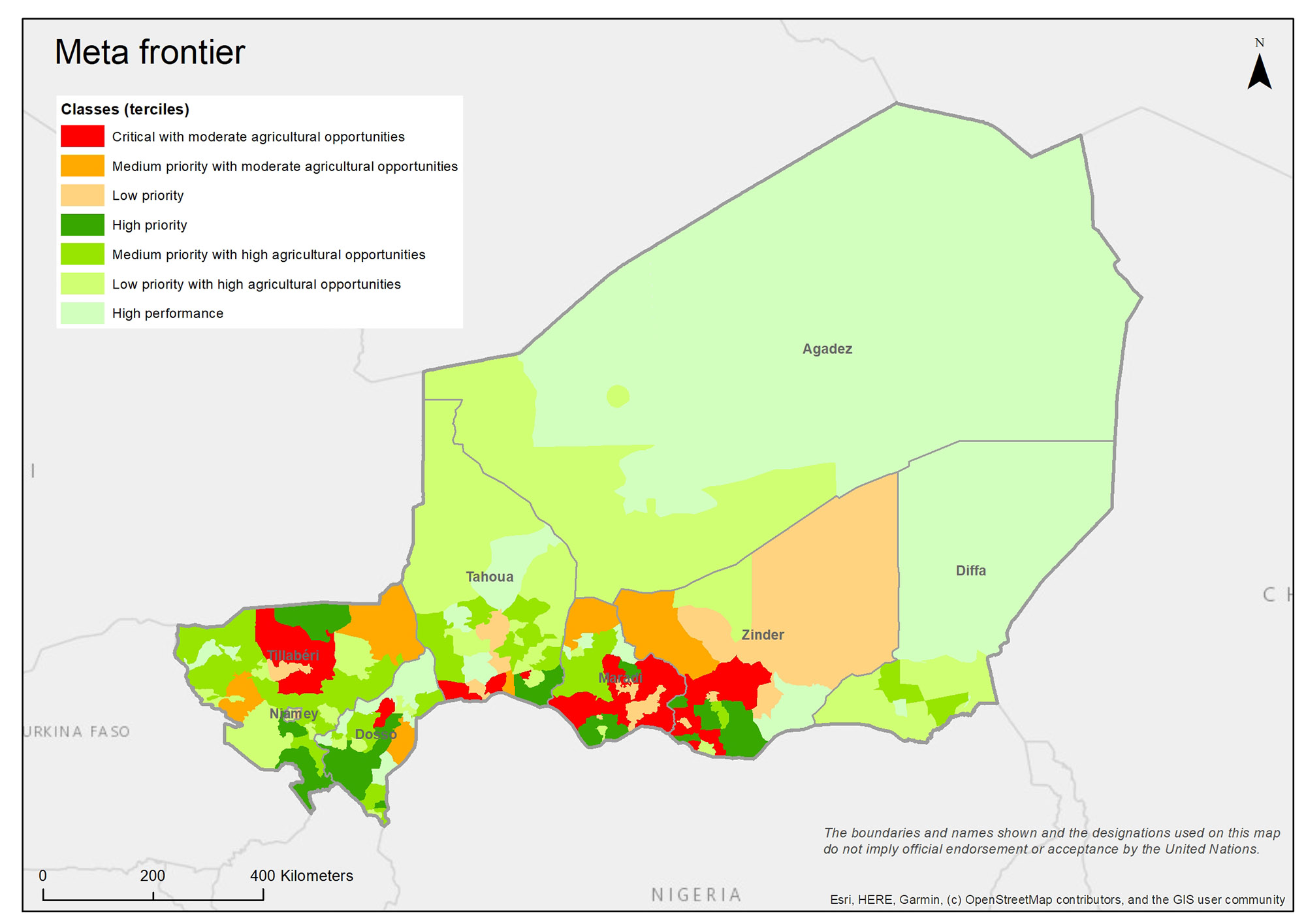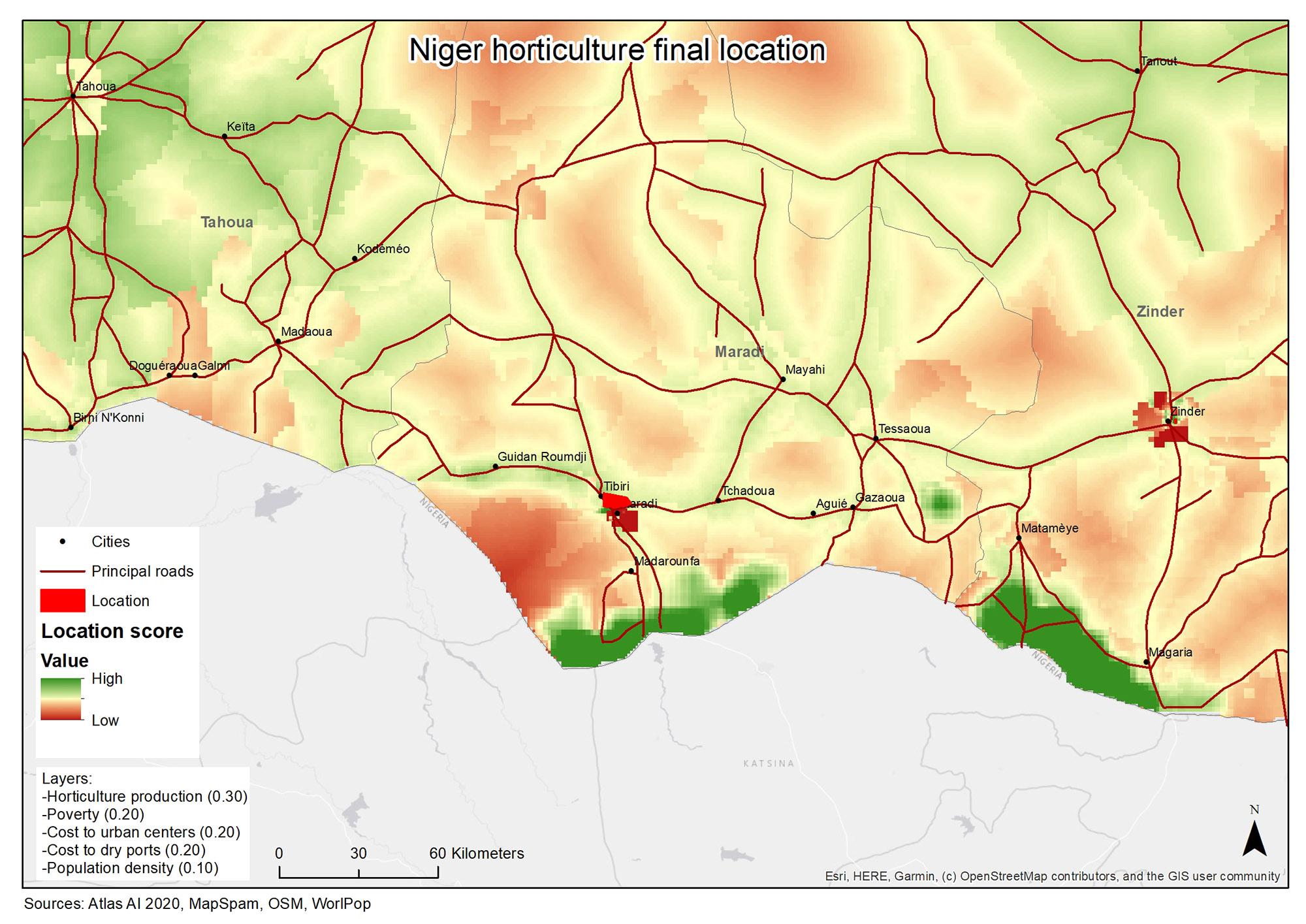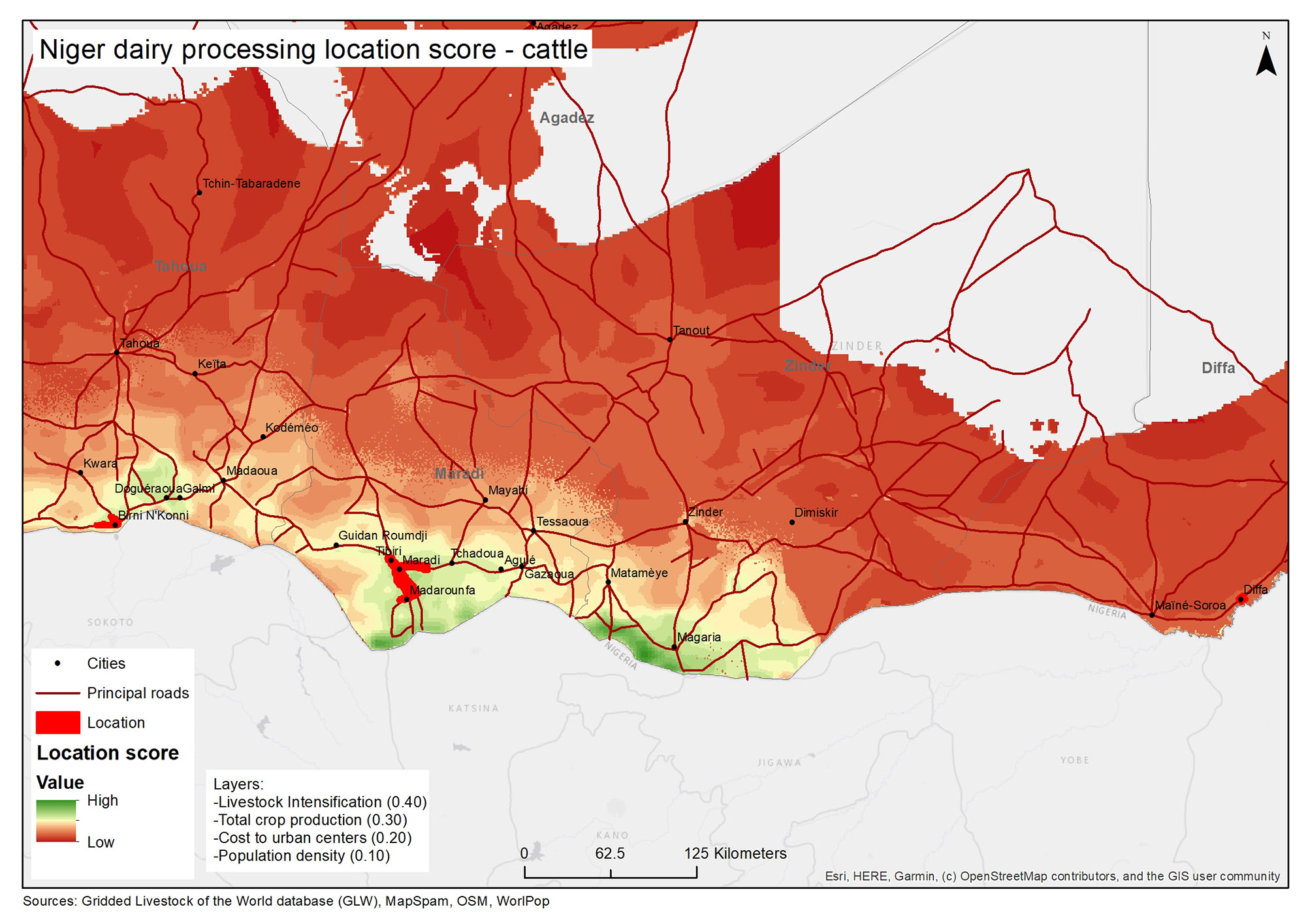Niger |
THE PROPOSAL
In Niger, the Hand-in-Hand Initiative is aligned to the recent presidential decision to develop agro-industrial hubs to transform the agriculture sector. The Initiative supports interventions in the Tahoua and Dosso regions to achieve poverty reduction and boost food security and nutrition. To this end, the Government seeks to build irrigated and non-irrigated production systems resilient to climate change; establish effective agri-food companies led by women and young people; develop value chains with high commercial and nutritional potential; and strengthen institutions to support innovation and inclusive territorial planning.

COMMODITIES AND INTERVENTIONS
Organic onion
Niger aims to increase the value of this commodity through product differentiation, processing and export growth in the Tahoua region. This is part of the Government's effort to meet domestic demand and create jobs for young people by ensuring the availability of onion throughout the year. It includes improving storage, developing small-scale irrigation schemes, promoting the use of bio-pesticides and organic soil amendments.
An investment of US$60.3 million, with an estimated internal rate of return of 41%, could increase onion production from 788,206 to 1.2 million metric tons. This would benefit 11,000 households, 40% of which are headed by young people.

COMMODITIES AND INTERVENTIONS
Dairy
In an effort to reduce the country’s dependence on imports, dairy has become a strategic commodity. The Government seeks to boost dairy production to meet domestic demand (1.5 billion litres) and build processing units and collection centres providing access to national and sub-regional markets. It also seeks to establish production contracts and create jobs for young people.
This effort requires an investment of US$34.6 million, which benefit 6,468 households. The expected internal rate of return is 29%,

COMMODITIES AND INTERVENTIONS
Moringa Production Using Small-Scale Irrigation
Interventions in the regions of Dosso and Tahoua focus on boosting moringa production on 1,415 hectares of land using small-scale irrigation systems. This would generate jobs and also support 100 producer cooperatives by improving infrastructure to process moringa crop.
A total of US$15.2 million in investment is sought. The net present value is estimated to be US$190,000 and the internal rate of return 31%. It is estimated that 49,725 farmers would benefit from this effort — including 7,000 families, 140 facilitators who would be trained, and 1,700 young collectors who would be employed through this scheme.
RESOURCES
See Niger's investment plan slide deck presentation in French and in English.
Minister Alambedji Roberto Laurenzi Discusses the HIH Initiative

